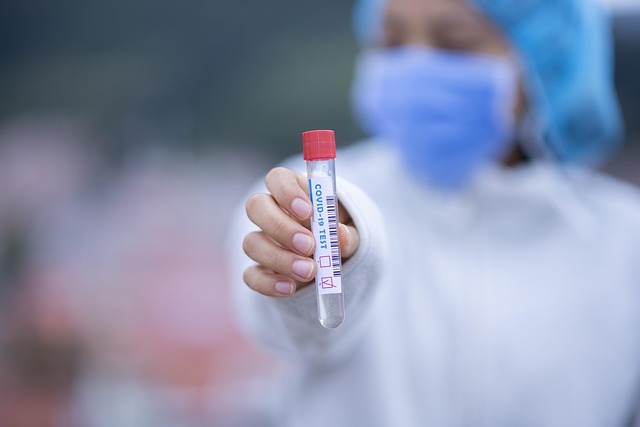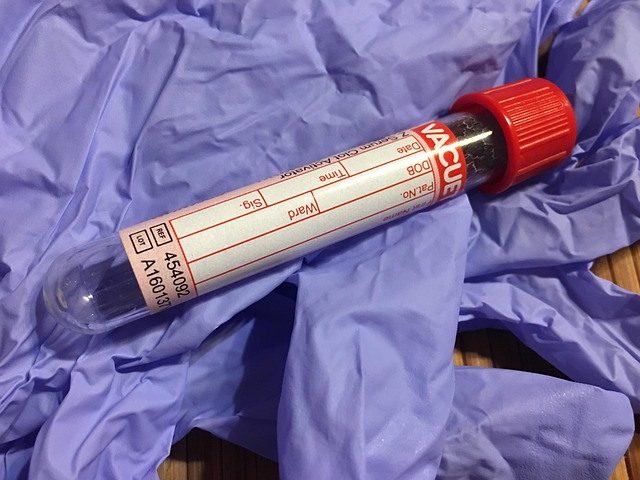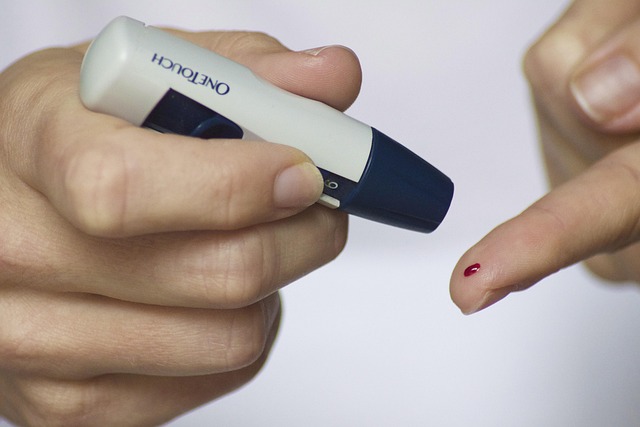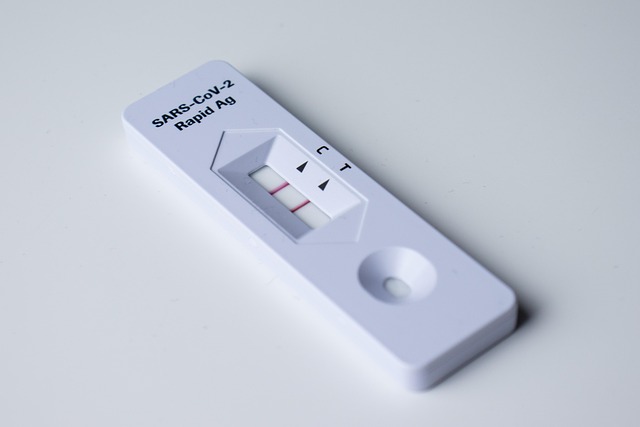Testosterone blood tests in the UK are standard for evaluating hormonal health, with results interpreted by professionals considering various factors. At-home tests offer privacy but lack comprehensive analysis. Repeat tests monitor TRT effectiveness and side effects, with costs varying based on lab fees and insurance coverage. Normal ranges for men are 9.0-30.7 nmol/L; symptoms like decreased sexual drive may indicate issues. Routine testing is advised if exhibiting low testosterone symptoms; frequency depends on medical guidance. Alternative methods like online calculators and home kits provide estimated levels for convenience.
In the UK, testosterone blood tests play a crucial role in diagnosing and managing hormonal imbalances. Understanding when repeat tests are necessary is essential for patients seeking optimal health. This article delves into the cost implications of repeated testosterone blood tests, factoring in lab fees and healthcare plans. We explore why these tests might be recurring, interpret results, discuss consultation timelines, and present alternative testing methods to provide a comprehensive guide for those considering a testosterone blood test UK.
- Understanding Testosterone Blood Tests in the UK
- Why Repeat Tests Might Be Necessary
- Cost Factors: Lab Fees and Healthcare Plans
- Interpreting Results and Medical Consultations
- The Timeframe for Repeated Testing
- Alternative Options to Traditional Blood Tests
Understanding Testosterone Blood Tests in the UK

Testosterone blood tests are a common diagnostic tool used by healthcare professionals in the UK to assess hormone levels, particularly in men experiencing symptoms associated with low testosterone or conditions like hypogonadism. These tests measure the concentration of testosterone in the blood and provide valuable insights into an individual’s hormonal health. The process typically involves taking a small sample of blood, usually from a vein in the arm, and analyzing it in a laboratory setting.
Understanding the results is crucial, as levels can fluctuate naturally throughout the day. Symptoms of too much testosterone in men, such as acne, hair loss, and aggressive behavior, are not always indicative of elevated levels; therefore, interpretation requires expertise. Healthcare providers consider age-related norms, medical history, and lifestyle factors to ensure accurate diagnosis. Additionally, some at-home thyroid tests have gained popularity, offering individuals a way to monitor hormone levels privately, though they may not provide the same depth of analysis as a professional testosterone blood test uk service.
Why Repeat Tests Might Be Necessary

In many cases, repeat testosterone blood tests are essential to accurately monitor and manage hormone levels, especially for individuals in the UK considering testosterone replacement therapy (TRT). Testosterone is a vital hormone that plays a crucial role in overall health and well-being, particularly in men. However, factors like age, lifestyle, and certain medical conditions can influence its levels, making regular testing beneficial.
Repeat tests are necessary to track changes in testosterone concentrations over time. This is especially important for those undergoing TRT as it helps healthcare professionals assess the treatment’s effectiveness and adjust dosage accordingly. Moreover, monitoring allows for early detection of any unusual fluctuations or potential side effects associated with TRT, such as excessive hair growth, voice changes, or cardiovascular risks. Given the privacy concerns surrounding medical testing, the Testosterone Blood Test Privacy Act ensures patients’ rights, making repeat tests a necessary step while maintaining patient confidentiality.
Cost Factors: Lab Fees and Healthcare Plans

The cost of repeat testosterone blood tests in the UK can vary greatly depending on several factors, with two key areas being lab fees and healthcare plans. Lab fees for a single testosterone blood test typically range from £50 to £200, with private clinics often charging at the higher end due to advanced equipment and specialist staff. However, these costs can increase significantly if you require more frequent testing or additional tests as part of a comprehensive assessment.
Healthcare plans play a substantial role in determining affordability. Many private medical insurance policies cover routine blood tests, including testosterone levels, as part of their benefits. This can make the process more financially accessible for those with insurance. Conversely, those without coverage may face higher out-of-pocket expenses. It’s crucial to understand both the direct costs and potential savings when considering where to get a testosterone blood test privately or evaluating how often you should undergo such testing, especially if exploring testosterone therapy, given its risks and benefits.
Interpreting Results and Medical Consultations

Interpreting your testosterone blood test results is a crucial step in understanding your hormone levels. In the UK, a typical testosterone blood test will measure the concentration of testosterone in your blood at a specific time. Normal ranges can vary slightly between labs and testing methods, but generally, levels are measured in nanomoles per litre (nmol/L). For men, a typical healthy range is around 9.0 to 30.7 nmol/L. If your results fall outside this range, it may indicate potential issues with your testosterone levels.
Symptoms of low testosterone in men can include decreased sexual desire or function, fatigue, muscle weakness, increased body fat, and bone density loss. However, these symptoms can also result from various other health conditions. If you’re concerned about your testosterone levels, it’s essential to discuss the results with your healthcare provider. They can help determine if further tests are needed and guide you on whether testosterone therapy is suitable for you, considering the potential risks and benefits, including side effects like prostate issues or hormonal imbalances. Does insurance cover these tests? Yes, many policies do, but coverage varies, so it’s important to check with your provider.
The Timeframe for Repeated Testing

The need for repeat testosterone blood tests can vary greatly depending on individual circumstances and medical advice. In the UK, when should guys consider getting a testosterone check? Typically, this is recommended if there are signs or symptoms suggesting low testosterone levels, such as decreased muscle mass, fatigue, reduced sexual drive, or erectile dysfunction. However, routine testing isn’t usually advised unless specifically requested by a healthcare professional due to underlying health conditions known to affect testosterone production.
The timeframe for repeated testing can depend on several factors. If initial results indicate abnormal testosterone levels, subsequent tests may be scheduled at more frequent intervals to monitor progress and adjust treatment plans accordingly. For instance, men considering do testosterone pills work might require regular testing to evaluate the effectiveness of any supplements or medications they’re taking. It’s also important to note that you can buy testosterone tests over the counter UK-wide, but these should only be used as a guide, and professional medical advice should always be sought for accurate diagnosis and treatment.
Alternative Options to Traditional Blood Tests

In the UK, while traditional testosterone blood tests are common, there are alternative options available that could be more convenient and cost-effective for some individuals. One such method is the testo level calculator, which provides an estimated reading of your testosterone levels based on a simple online assessment. This option is particularly appealing to those who want a quick, non-invasive way to monitor their hormone levels without the need for frequent blood draws.
Additionally, home testing kits for testosterone are now readily accessible, allowing individuals to test themselves in the comfort of their own homes. These kits offer a convenient and private alternative to traditional medical settings. While they may not provide the same level of accuracy as a clinical test, they can still give valuable insights into testosterone levels. Moreover, some people might find the process of taking a home testing kit less intimidating or painful compared to a standard blood draw, which is often perceived as somewhat invasive.
Repeat testosterone blood tests in the UK can be essential for managing hormone levels, especially if initial results are outside the reference range. While the cost of these tests may vary based on lab fees and healthcare plans, understanding the importance of repeated testing is key to maintaining optimal health. Regular monitoring allows medical professionals to make informed decisions and adjust treatments accordingly. When considering the financial aspect, having a clear understanding of your healthcare plan’s coverage can help manage costs effectively. Alternatively, exploring advanced testing methods could offer more affordable options for continuous hormone level tracking.
